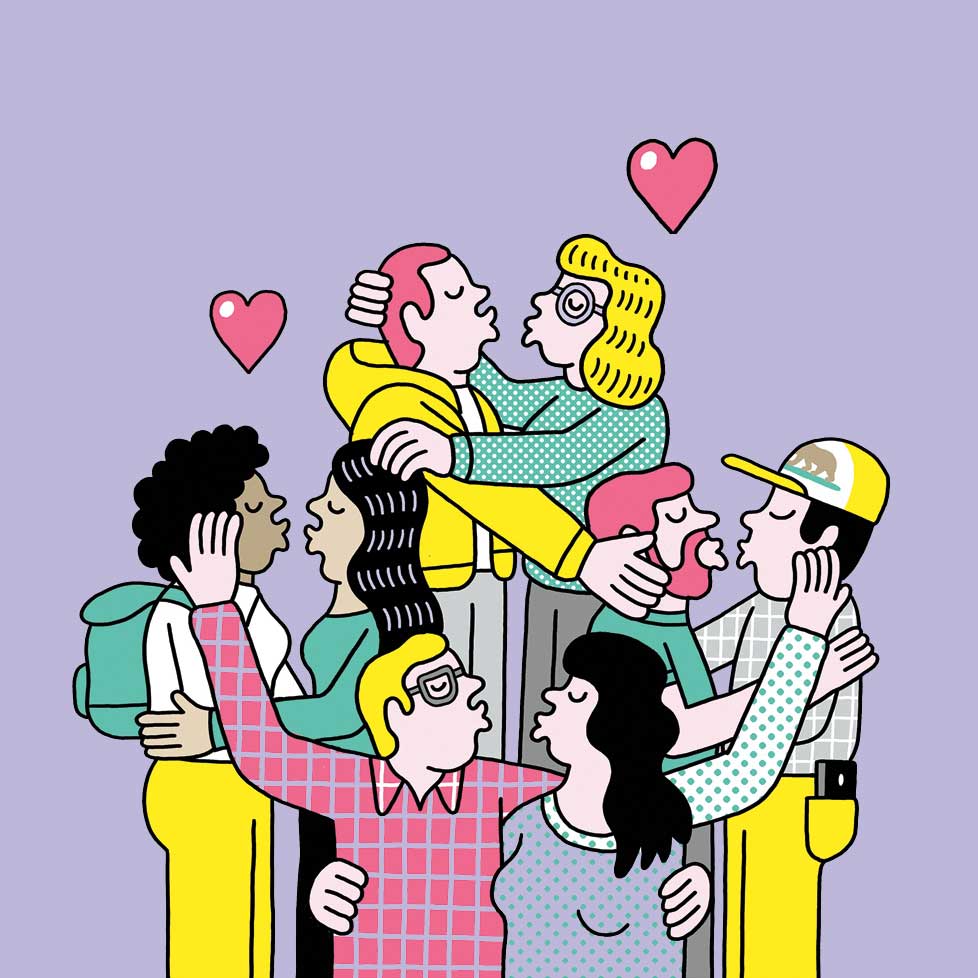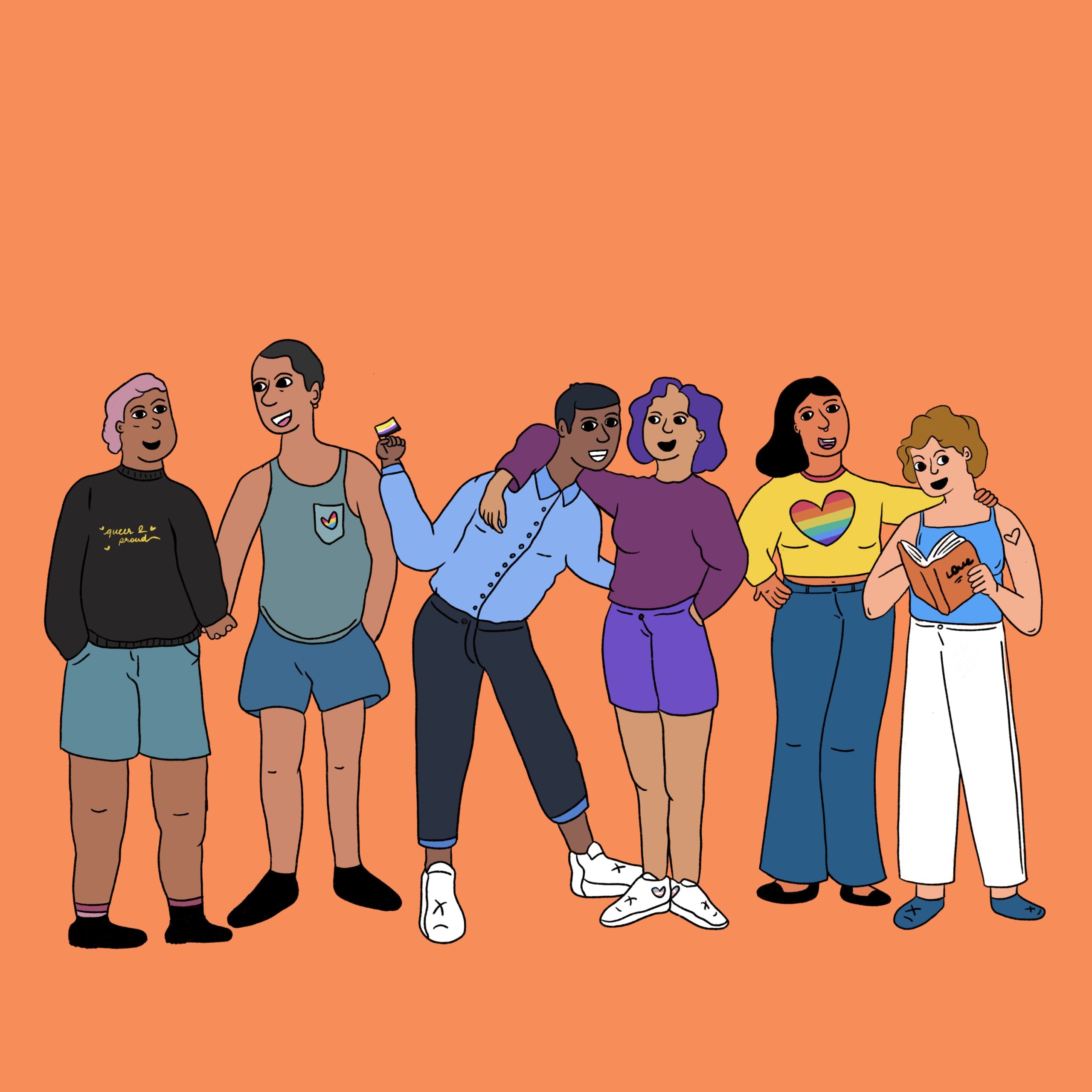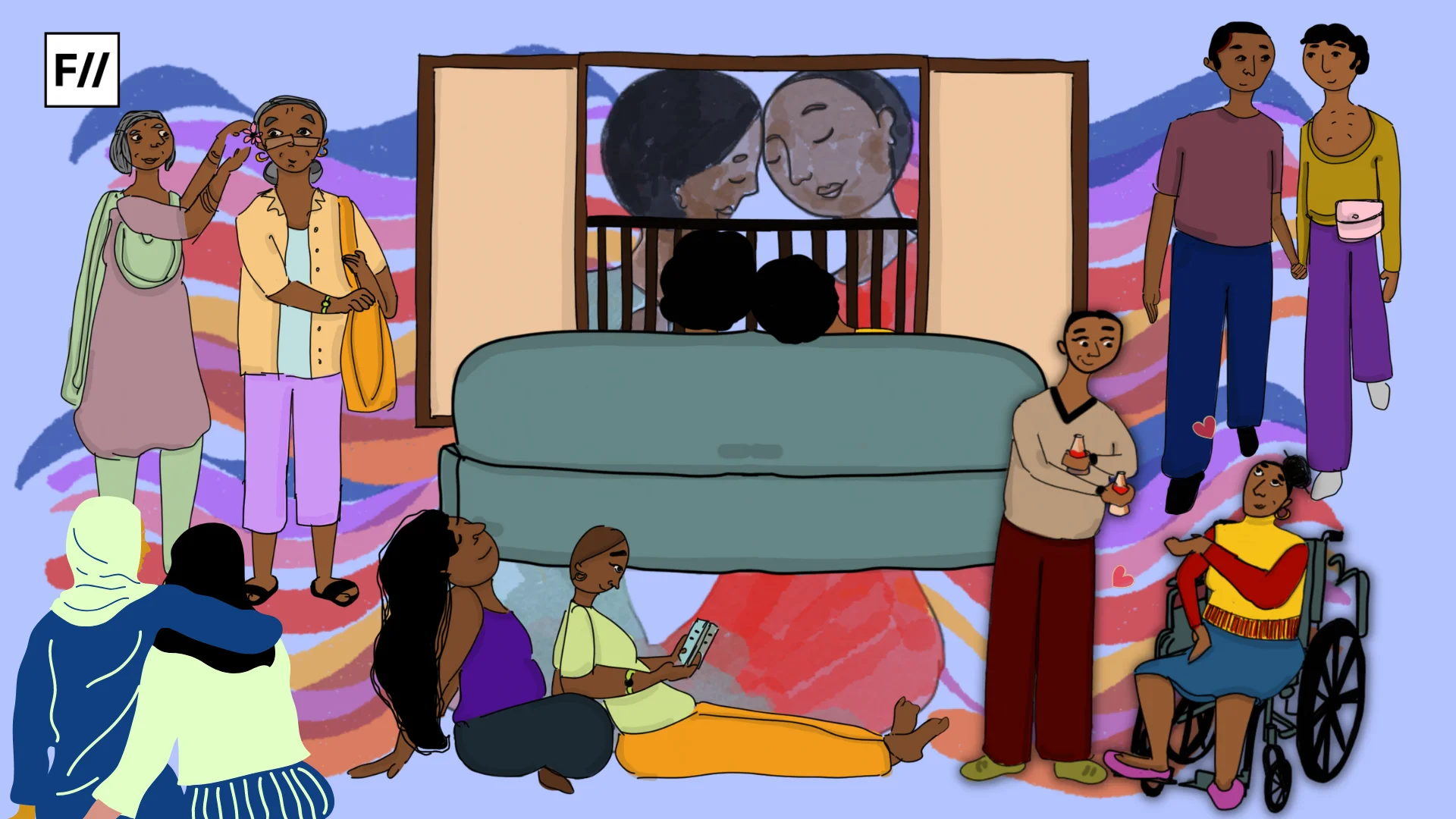When my partner and I decided to start seeing other people, I was excited. I had wanted to do this for a long time and knew in my heart that monogamy did not appeal to me. I resonated with Esther Perel in Mating in Captivity — love is about having, and desire is about wanting what is elusive, what is non-repetitive and unfamiliar. I was eager to meet new people, and quite apart from the physical intimacy, I wanted to experience what I did not know how to verbalise back then.
I was looking for moments of tenderness, vulnerability and defencelessness, with some affection and good conversation. I did not intend to establish a long-standing friendship, nor was I looking for other partners — I was looking to temporarily fill a space between partners and friends.
Once we started, as a cis-heteroromantic bisexual woman I realised that my partner and I were navigating through very different realities. While he had trouble getting women to trust him as a stranger in a misogynistic city, that was the only impediment he faced. For me, online dating applications often meant creepy men showing up at my doorstep unannounced. Men telling me I was, “cheating on my partner” and giving moral lectures about it. And, of course, men who did not understand consent.
Once we started, as a cis-heteroromantic bisexual woman I realised that my partner and I were navigating through very different realities. While he had trouble getting women to trust him as a stranger in a misogynistic city, that was the only impediment he faced. For me, online dating applications often meant creepy men showing up at my doorstep unannounced. Men telling me I was, “cheating on my partner” and giving moral lectures about it. And, of course, men who did not understand consent.
Although I often felt I had a duty to engage with these actions, as a feminist, I also gave myself the grace of recognising that I simply did not have the energy or time to argue and educate in many situations. I kept time at the centre of my experiences — some were people I wanted to spend time with despite the opportunity costs it involved, while others ended up being bad uses of my time.
To stop wasting any of what felt like precious time given my demanding work hours, I thought of connecting with known men, hoping the common circles would enforce some degree of accountability and prevent non-consensual behaviour. I also thought a degree of familiarity meant I did not have to go through the entire length of small talk to get to know them and detect any red flags at the outset.

However, known men were often disrespectful of consent too, and this regularly gave rise to more complications with respect to confidentiality. Being with known men had a chilling effect on both our expressions — we were both unsure of how much information was being shared with third parties. I was not sure to what extent I wanted to let people from my school and college circles know that I was seeing other people since I am a private person myself.
Once I informed some of these men about my relationship, they often assumed I was only looking for physical intimacy and rarely put effort into a decent conversation or a minimal degree of emotional intimacy. I was also not keen on verbalising my desire for the kind of intimacy I wanted, given our culture’s swift dismissal of any non-physical intimacy as clinginess without probing a blurred, more ambiguous form which fit into neither category.
Although I often felt I had a duty to engage with these actions, as a feminist, I also gave myself the grace of recognising that I simply did not have the energy or time to argue and educate in many situations. I kept time at the centre of my experiences — some were people I wanted to spend time with despite the opportunity costs it involved, while others ended up being bad uses of my time.
Intimacy in our minds is neatly fit into monogamy versus exclusively physical intimacy, although I wanted something which transcended these.
Through my experiences with others, I also realised the absolutely basic expectations I had from men, although I myself was steadfastly being held to significantly higher (and hypocritical) standards by them. While my partner was meeting fascinating, respectful and open-minded women, it felt as if men with these qualities simply did not exist. Many (if not all) men were projects of empathy that usually the women in their lives had been working towards for years.
At the same time, I wondered if my sexuality was, as bell hooks claimed, getting more of my own attention only because when we spoke of love instead, we had to speak of loss, of our own failures of will and courage. Harold Kushner’s words in When All You Ever Wanted Isn’t Enough, also made me think if I was, in fact, looking for intimacy without risk, of pleasure without significant emotional investment, and this expression of sexuality was itself following patriarchal standards.
Were people like me with multiple sexual partners trying to emulate men by following a “strictly physical intimacy” standard? This version of physical intimacy — and nothing more — left me feeling slightly unfulfilled, and it was through a combination of trial and error that I understood the contours of the intimacy I wanted — and ultimately was able to get.

Craving a nameless intimacy has been far from what I imagined it would be. At the same time, it led me to introspect my own desire, using feminist texts and other people’s experiences as guides. Beyond these subjectivities, I came to terms with the extent of roadblocks to romance and sexuality in my own city. The Indian urban landscape has rarely been a space for women to exercise their sexuality — from my mobility to my clothes, to who my partner was with, and my own profile on a dating app — everything was open for questioning from different avenues, and masked as “safety concerns”. But Delhi has been an uncivil city for decades now, and I felt a degree of audacity — of power — even in being able to express my sexuality in the way that I wanted to.
Through my experiences with others, I also realised the absolutely basic expectations I had from men, although I myself was steadfastly being held to significantly higher (and hypocritical) standards by them. While my partner was meeting fascinating, respectful and open-minded women, it felt as if men with these qualities simply did not exist. Many (if not all) men were projects of empathy that usually the women in their lives had been working towards for years.
It felt good to act on the knowledge that my sexuality did not belong to my partner and that there was no longer an assumption that it fell rightly within his jurisdiction, as Perel observes in Mating in Captivity. My separateness felt unassailable. This felt especially precious in a context where most women I know have never themselves experienced the pleasure and power of non-monogamy without feeling an overwhelming sense of guilt especially given the popular media portrayal of monogamy as a one-stop solution to a satisfying life.
Also read: Is Infidelity An Institutional Problem?: Monogamy, Ideal Love And Our Moral Gaze Of Gehraiyaan
Although it did result in some unpleasant experiences, being non-monogamous introduced me to affectionate and genuinely caring people — people who were unabashed about their vulnerabilities, and did not hide behind cautious banter. As an ambivert myself, romantically meeting people encouraged me to move far out of my comfort zone — and introduced me to people I would simply not have met otherwise.
I met journalists, graphic designers, artists, photographers, lawyers and MBA graduates, PhD candidates, and legal researchers. My experience also reaffirmed my belief that romantic love need not be restricted to one partner — it was beautiful each time I found the intimacy I craved, and as I watched people unravel their own defences, each time I listened to realities and insecurities I would not have imagined them having, I formed a rapport deeper than friendship.
Beyond the veneer of Instagram images which portray a nauseatingly happy life and a social circle so tightly knit as to prevent the leakage of any vulnerability, these experiences revealed a groundedness that I cherished being privy to.
Also read: Women And Infidelity: Perspectives On Cheating In A Rigged Game
Featured Image Source: Shreya Tingal for Feminism In India





I think that being monogamous or polyamorous is a personal choice. I believe in monogamy and the idea of loving and being intimate with one person all my life.
I think that the morality question kicks in when a person is polyamorous but their partner is monogamous. The feelings of hurt, betrayal and worthlessness are very real when a partner (a polyamorous partner) cheats on their significant other (the monogamous partner).
I don’t think that I can connect with the author but I enjoyed reading the article nonetheless. To each her own, I guess 🙂
I feel the same. You gave words to my emotions.